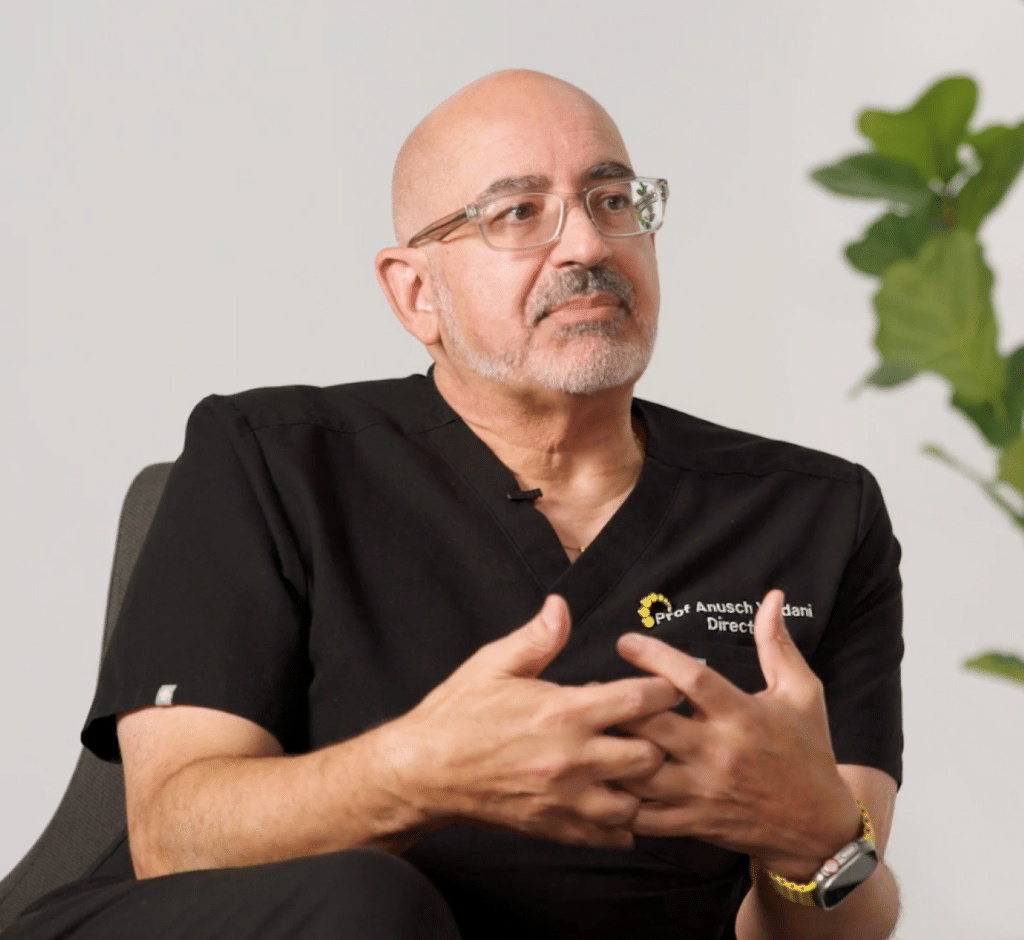A game-changing new period and reproductive health app could help Australian women take control of the diagnosis and management of conditions like endometriosis.
Launching today, the CHARLI app has partnered with Endometriosis Australia, and uses AI technology to help users track and monitor menstruation, fertility, sexual health, pregnancy and menopause, as well as identify pain conditions like endometriosis.
The app includes a virtual clinic that links users with real-world healthcare professionals, including GPs, specialists and allied health practitioners, as well as group support.
Co-founder of the app and medical director at Endometriosis Australia, Associate Professor Anusch Yazdani, told Women’s Agenda the app is a solution for the inequities in healthcare access and diagnostic support experienced by many Australians, especially those in regional and rural areas.
“We know there are many Australians living with the symptoms of endometriosis undiagnosed for years, especially in rural and remote areas. CHARLI aims to address this by identifying abnormal patterns and prompting women to discuss with their doctor,” Yazdani said.
“CHARLI has been specifically designed for equitable access to information, diagnostics and therapeutics at the point of care, regardless of whether an individual is in Sydney or the Pilbara. She only needs access to a mobile phone.”

“The same principles apply to other reproductive health conditions addressed by CHARLI, including polycystic ovary syndrome, premenstrual syndrome, premature ovarian failure, peri-menopause and infertility which are all integrated into the app. The next iterations of CHARLI will specifically address infertility and assisted reproduction, scheduled for September 2024 and pregnancy, scheduled for January 2025.”
On average, it takes just under seven years to be diagnosed with endometriosis in Australia. According to Associate Professor Yazdani, there is evidence that the time to diagnosis has been reducing slowly, primarily due to growing awareness of the condition.
“Before 2005, the time from first presentation to a medical practitioner to diagnosis was almost 10 years, in 2012 it had dropped to 5 years and now reduced to just under two years… though the number of doctors seen to get a diagnosis is still high at 4 (previously 7),” he said.
“Unfortunately, the time from onset of symptoms to first presentation to a practitioner has remained fixed at about 3 years.”
There are a number of reasons for this delay, mostly related to the nature of pain, he said.
“Pain is an intensely personal experience, there are no absolute descriptors to quantify pain and there is frequent normalisation of pain behaviour. It is, therefore, entirely unreasonable to expect a 14-year-old in the Pilbara to realise that what she is experiencing is abnormal, let alone endometriosis. CHARLI is an independent arbiter and will alert her to a potential diagnosis of something like endometriosis.”
Supporting women to take control of their health
One of the key aims of the app is to empower women to take their health into their own hands. It provides women with the tools for diagnostics and therapeutics and gives access to a curated wealth of patient-centred sexual and reproductive health information. These include evidence-based articles, personalised professional blogs, and healthcare webinars.
“Uniquely, CHARLI integrates support for acute pain management, such as pain ‘flares’. Through CHARLI, individuals can monitor the symptoms that are important to them, be they pain, fertility, period or mood-related. This knowledge and insight will allow her to drive patient centred management,” Yazdani said.
Another key aspect of CHARLI is that it validates what women are going through. This is especially important in light of a new survey by the National Women’s Health Advisory Council, which found over 70 per cent of women said they experienced gender bias in the diagnosis and treatment of health conditions.
“It has been the mission of Endometriosis Australia to support and advocate for those affected by endometriosis. CHARLI extends this mission, empowering individual women to access the information and tools they need to drive their own health destiny,” said Associate Professor Yazdani.
“CHARLI validates the experience of women, and, in particular, provides a context for their journey, particularly where women are either socially or geographically isolated.
“The next iteration will give individuals access to a community of women that have had similar experiences, as well as connecting them with accredited health care providers who have the experience to manage the spectrum of issues confronting women with endometriosis.”


